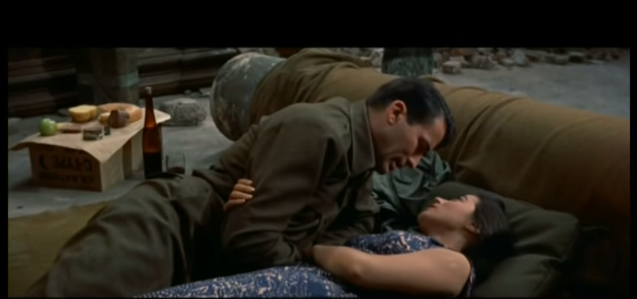 Wilson’s The Man in the Gray Flannel Suit and Johnson’s film strongly solidified the character of Tom Wrath as a symbol of mid-twentieth Century America, the rising generation of white, well-educated men striving for wealth and power in mid-century 19th...
Wilson’s The Man in the Gray Flannel Suit and Johnson’s film strongly solidified the character of Tom Wrath as a symbol of mid-twentieth Century America, the rising generation of white, well-educated men striving for wealth and power in mid-century 19th...
 Ernest Hemingway thought Sloan Wilson’s The Man in the Gray Flannel Suit was trash. However, Americans still readjusting to World War Two and its aftermath thought made it a best-seller. Within a year of publication, Nunnally Johnson directed a faithful film...
Ernest Hemingway thought Sloan Wilson’s The Man in the Gray Flannel Suit was trash. However, Americans still readjusting to World War Two and its aftermath thought made it a best-seller. Within a year of publication, Nunnally Johnson directed a faithful film...
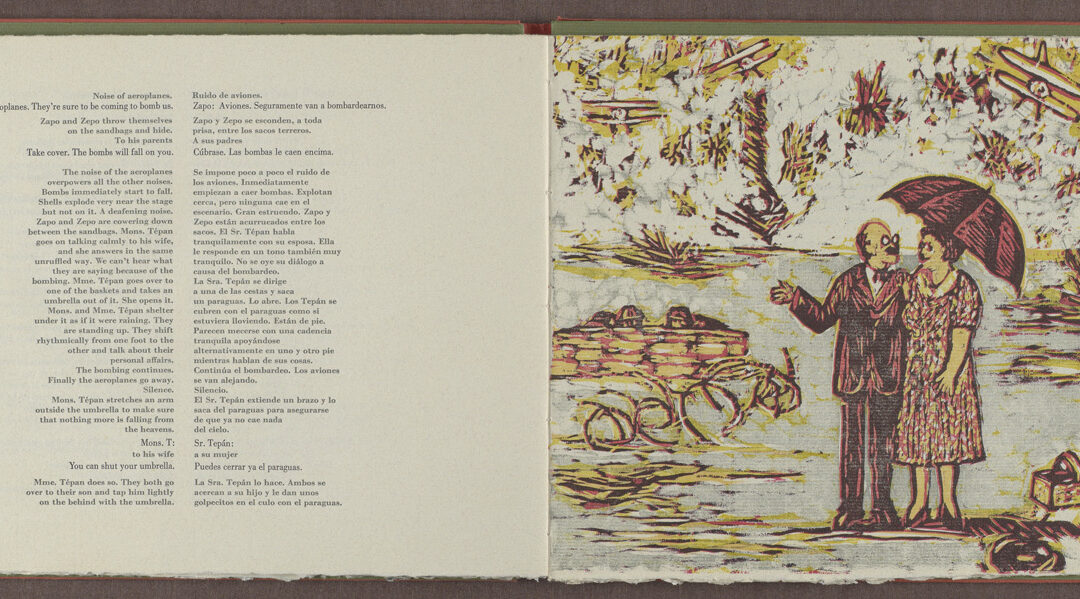 Arrabal’s Picnic on the Battlefield is a metaphor for the stupidity of war. He undermines picnic expectations as the obtuse (but well-meaning) Tépans march onto the battlefield to entertain their son Zapo. When the action begins, Zapo is surprised to see...
Arrabal’s Picnic on the Battlefield is a metaphor for the stupidity of war. He undermines picnic expectations as the obtuse (but well-meaning) Tépans march onto the battlefield to entertain their son Zapo. When the action begins, Zapo is surprised to see...
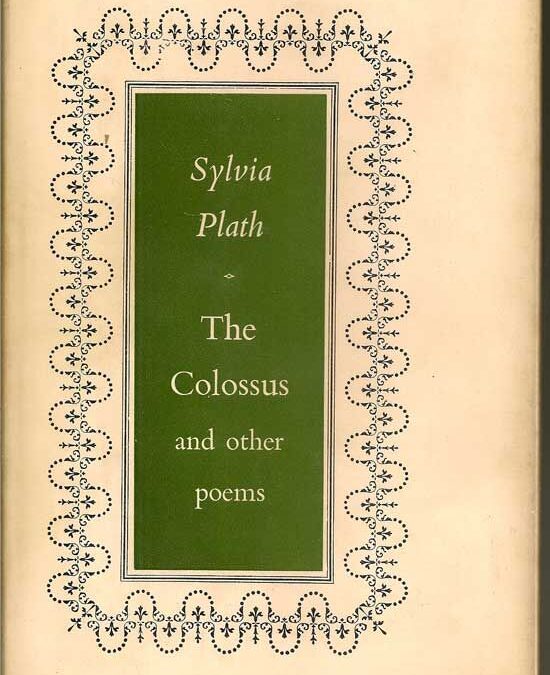 Plath’s “The Colossus” is specifically a jab at her dead father, Otto Plath, less clear an allusion to her husband, Ted Hughes. She had a stormy and pathological relationship with her long-dead Daddy, “Thirty years now I have labored,”...
Plath’s “The Colossus” is specifically a jab at her dead father, Otto Plath, less clear an allusion to her husband, Ted Hughes. She had a stormy and pathological relationship with her long-dead Daddy, “Thirty years now I have labored,”...
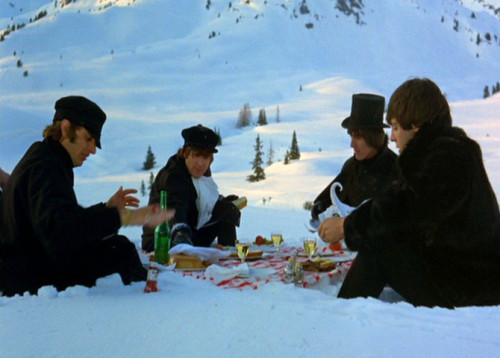 Help! It is Richard Lester’s romp with The Beatles. Among the many scenes is a brief picnic in the snow that sets up singing “Ticket to Ride.” The song and the picnic are completely disconnected. And there’s no picnic basket when the quartet sits at a red and white...
Help! It is Richard Lester’s romp with The Beatles. Among the many scenes is a brief picnic in the snow that sets up singing “Ticket to Ride.” The song and the picnic are completely disconnected. And there’s no picnic basket when the quartet sits at a red and white...
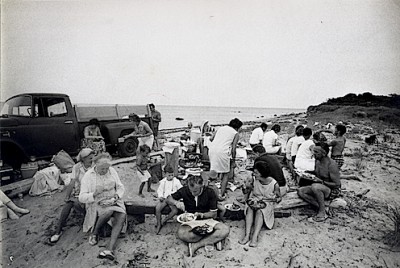 Franey, executive chef of Le Pavilion, New York’s only four-star restaurant, and Craig Claiborne, the New York Times food critic, planned an August picnic on Gardiners Island. * It was staged in August 1965 and ironically reported in a Life magazine issue...
Franey, executive chef of Le Pavilion, New York’s only four-star restaurant, and Craig Claiborne, the New York Times food critic, planned an August picnic on Gardiners Island. * It was staged in August 1965 and ironically reported in a Life magazine issue...
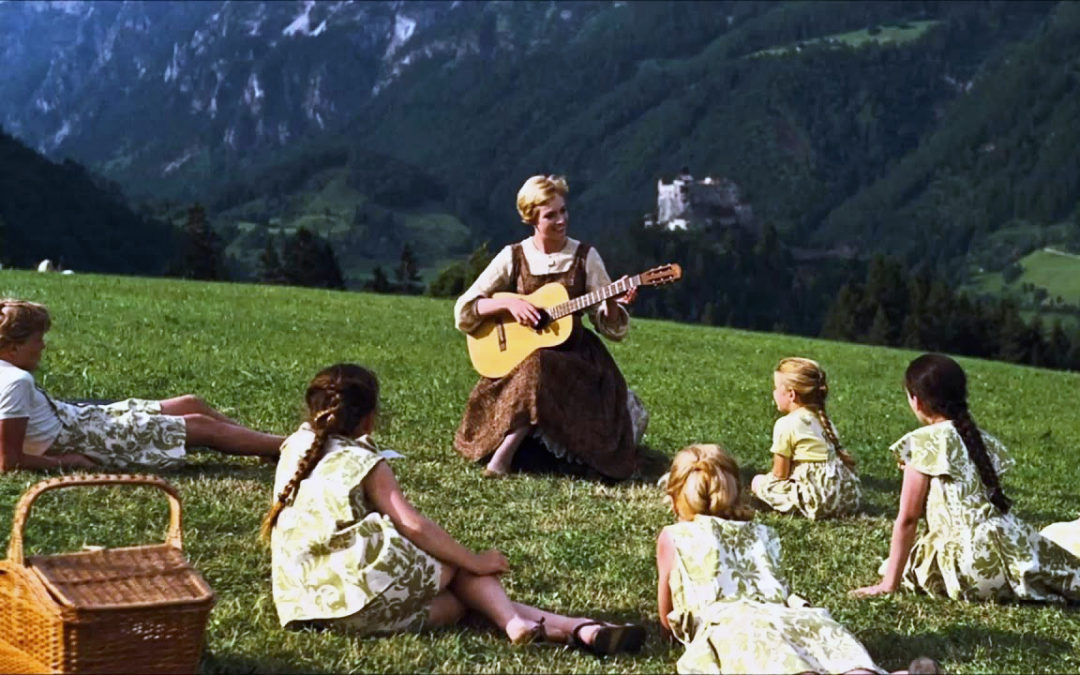 Wise’s The Sound of Music picnic is among film’s happiest and most exuberant picnics. It’s his creation because Rodgers and Hammerstein’s musical does not have picnic. Maria and the children sing “Do-Re-Mi” while marching in the...
Wise’s The Sound of Music picnic is among film’s happiest and most exuberant picnics. It’s his creation because Rodgers and Hammerstein’s musical does not have picnic. Maria and the children sing “Do-Re-Mi” while marching in the...
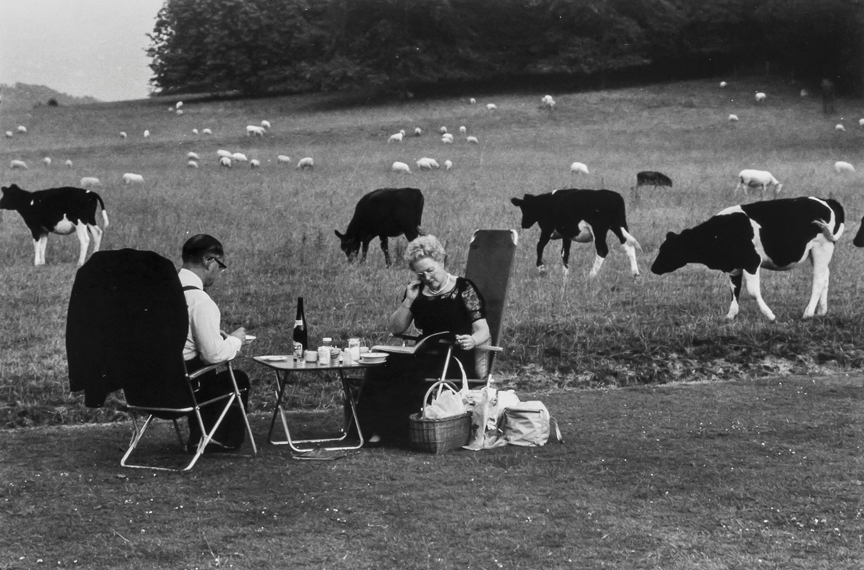 Ray-Jones’ attitude towards life was to expose its “gentle madness” and “to walk, like Alice, through a Looking-Glass, and find another kind of world with the camera.” He preferred to photograph situations that are “ambiguous and unreal, and the juxtaposition of...
Ray-Jones’ attitude towards life was to expose its “gentle madness” and “to walk, like Alice, through a Looking-Glass, and find another kind of world with the camera.” He preferred to photograph situations that are “ambiguous and unreal, and the juxtaposition of...
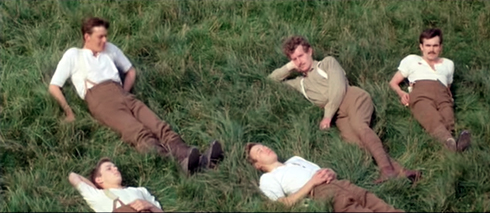 Attenborough’s Oh! What a Lovely War keeps the essential anti-war satire originally envisioned by Charles Chiltern and Joan Littlewood. New and effective, however, is the film’s final sequence, which begins as a picnic on the grass and ends with a...
Attenborough’s Oh! What a Lovely War keeps the essential anti-war satire originally envisioned by Charles Chiltern and Joan Littlewood. New and effective, however, is the film’s final sequence, which begins as a picnic on the grass and ends with a...
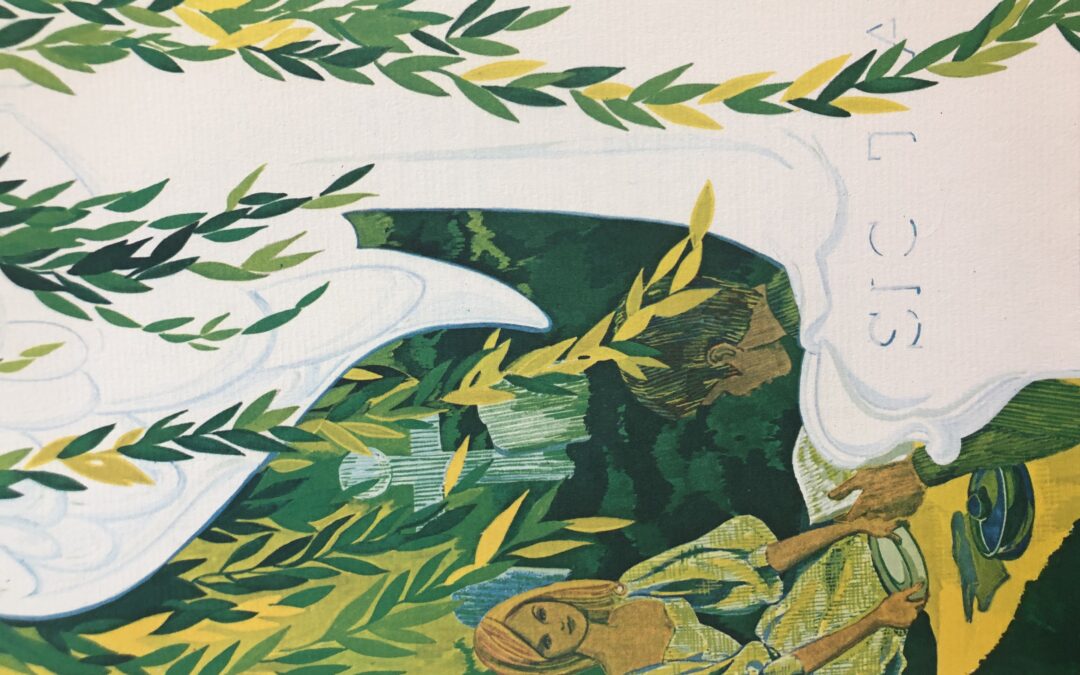 Hazelton prefers picnics that are not spontaneous.. She contends a picnic begins when you “invite the people and then figure out the food.” “My idea of a good picnic, she writes, “is one that I can fix up at home and need only carry and unpack at the chosen spot. I...
Hazelton prefers picnics that are not spontaneous.. She contends a picnic begins when you “invite the people and then figure out the food.” “My idea of a good picnic, she writes, “is one that I can fix up at home and need only carry and unpack at the chosen spot. I...











